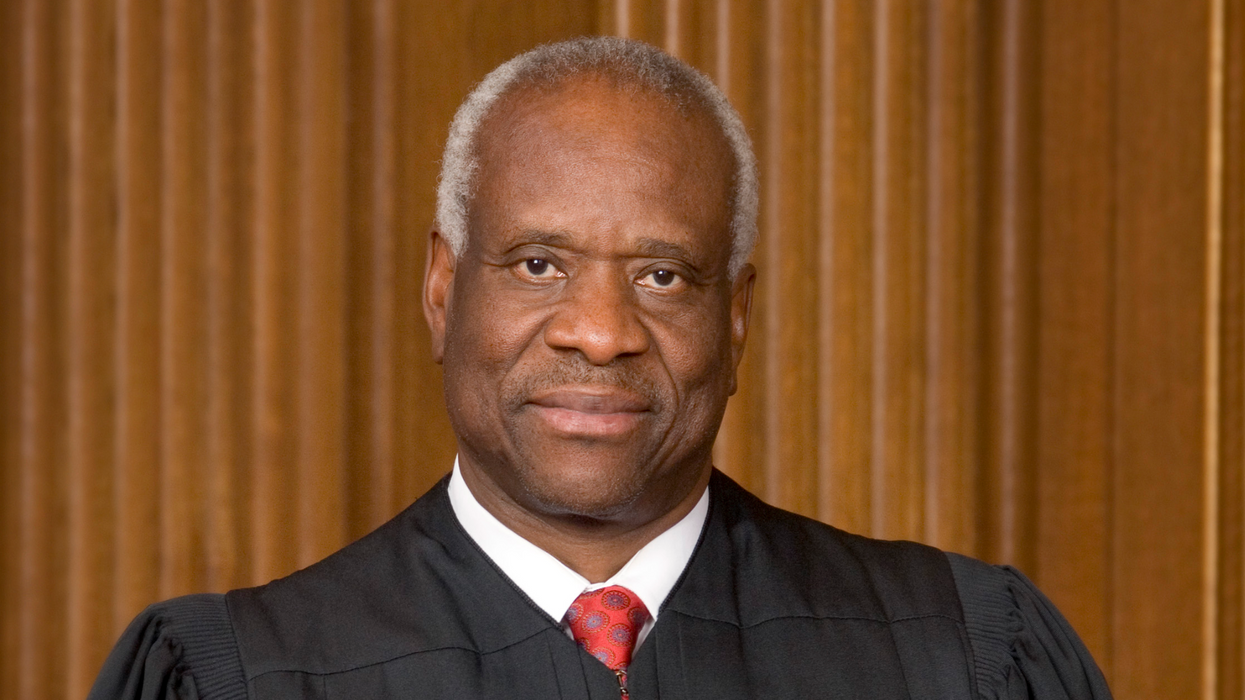Clarence Thomas’ 'impartiality' questioned over refusal to recuse himself from Trump election case

U.S. Supreme Court Justice Clarence Thomas in 2007 (Creative Commons)
February 08, 2024 | 12:08PM ETBank
When the U.S. Supreme Court began hearing oral arguments in Trump v. Anderson on Thursday morning, February 8, one of the justices asking attorney Jason Murray questions was Justice Clarence Thomas.
Some of Thomas' critics have been arguing that he should have recused him from the case, which deals with the Colorado Supreme Court's decision to remove Donald Trump from their presidential ballot based on Section 3 of the U.S. Constitution's 14th Amendment.
Section 3 states that an "officer" who has engaged in "insurrection" is ineligible to run for certain government positions. And some of the Thomas' detractors believe that the far-right justice has no business ruling in Trump v. Anderson in light of the fact that his wife, far-right conspiracy theorist and GOP activist Ginni Thomas, tried to keep Trump in the White House despite the fact that he lost the 2020 election.
In a column published on February 8, the Washington Post's Philip Bump argues that Justice Thomas' decision not to recuse himself raises major questions.
"The question for Thomas in the Anderson case is whether the advocacy of his wife, Virginia, on Trump's behalf in the weeks after the 2020 election should trigger recusal," Bump explains. "Virginia, usually known as Ginni, Thomas was enthusiastic about the idea that Biden's victory was invalid and that Trump should retain power. She used an online tool to send e-mails to Arizona legislators encouraging them to reject their state's certified results."
Bump continues, "She sent text messages to Trump's chief of staff, Mark Meadows, encouraging him to help Trump 'stand firm' against 'the greatest Heist of our History.' She also passed along false theories about purported fraud. Ginni Thomas was also at Trump's speech on January 6, 2021, before many in the crowd moved toward the Capitol. Does this cross that blurry line of recusal?"
The Post columnist notes that in a University of Massachusetts, Amherst poll conducted in January, almost two-thirds of respondents said that Justice Thomas "definitely" or "probably" should "remove himself from cases related to the 2020 election."
READ MORE: Legal expert makes conservative 'originalist' case against 'insurrectionist' Trump
"That suggests that Thomas' impartiality is reasonably being questioned," Bump observes. "We should not, however, expect that (Justice) Thomas would therefore recuse, given what we know about Thomas."
READ MORE: Why Donald Trump should absolutely fear the 14th Amendment
Read Philip Bump's full Washington Post column at this link (subscription required).